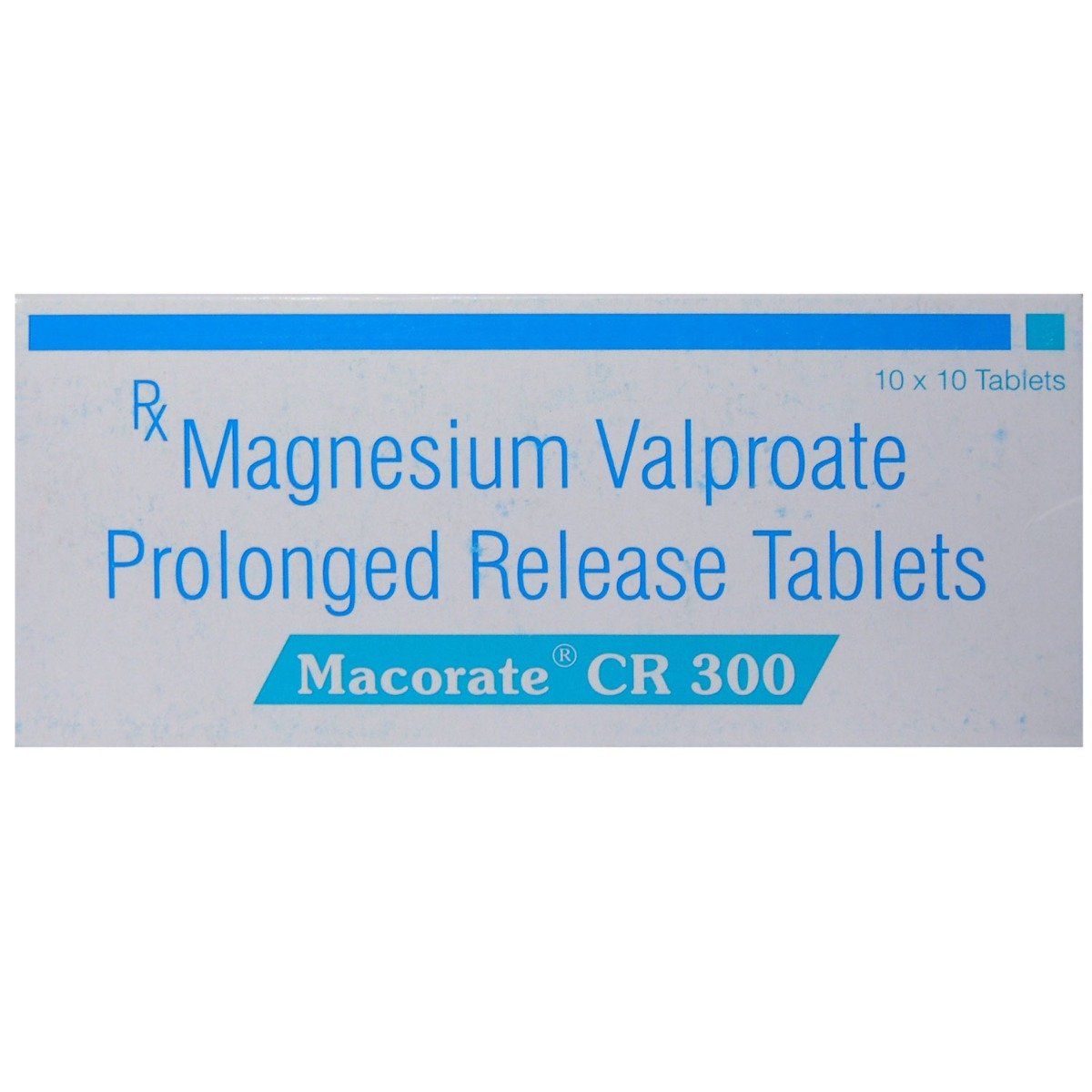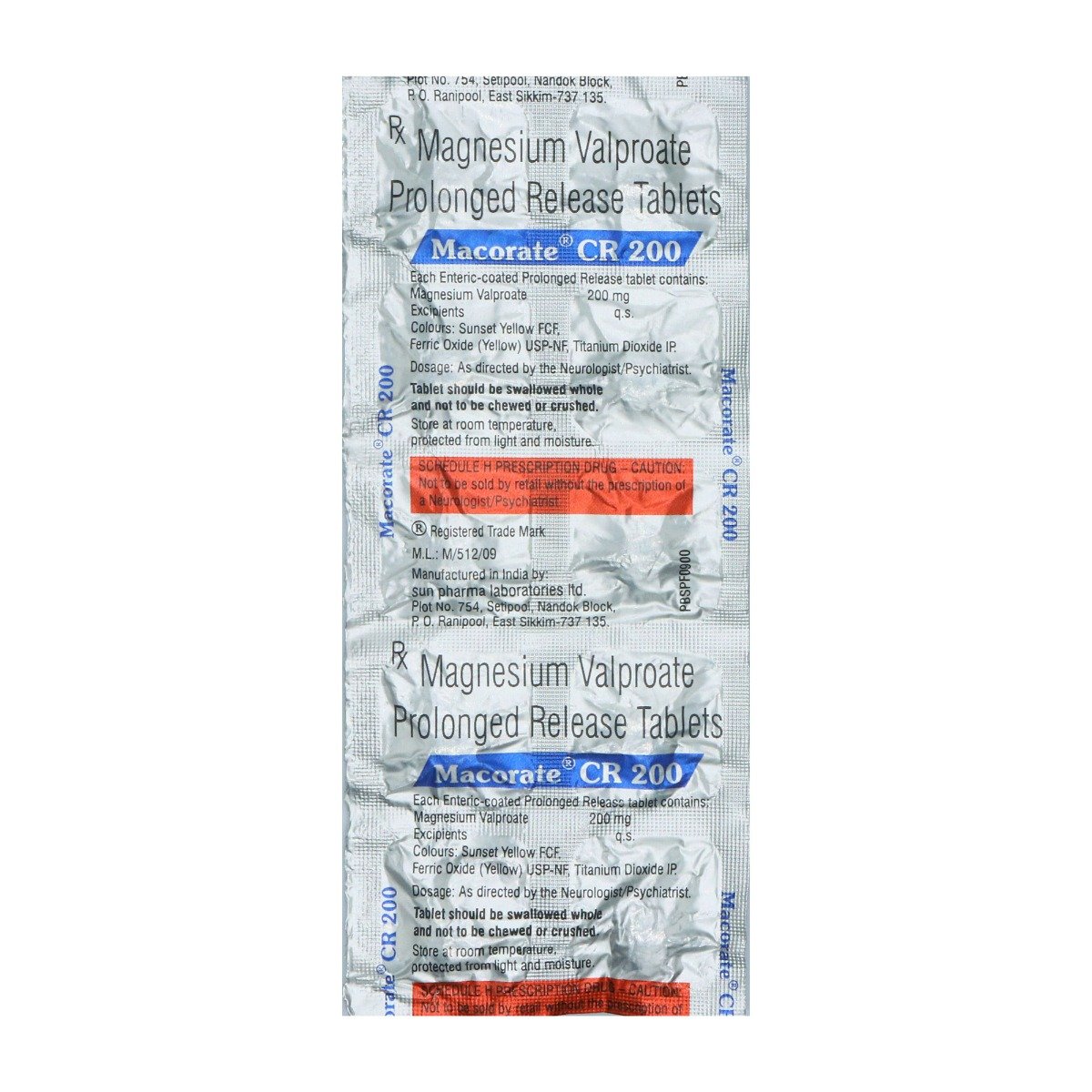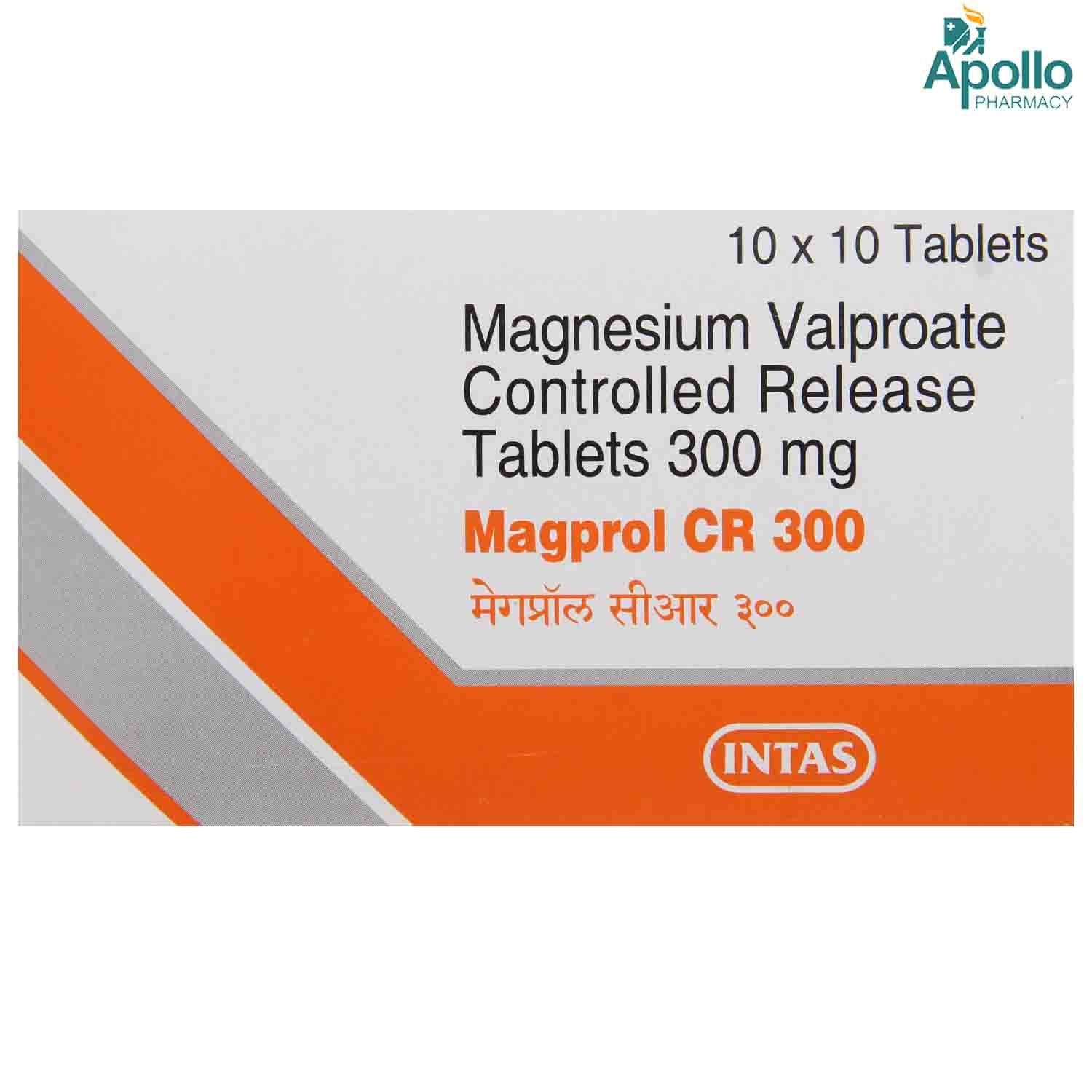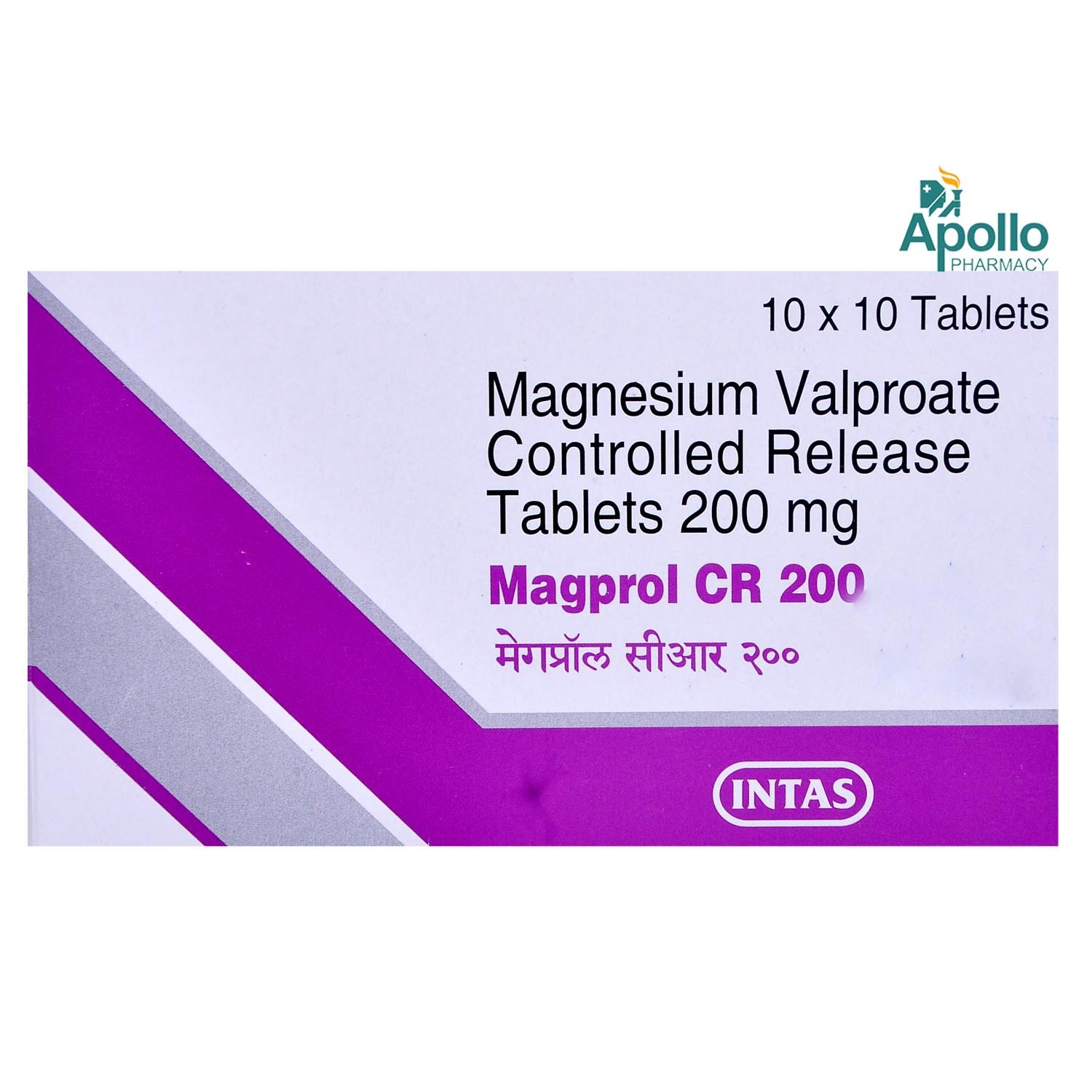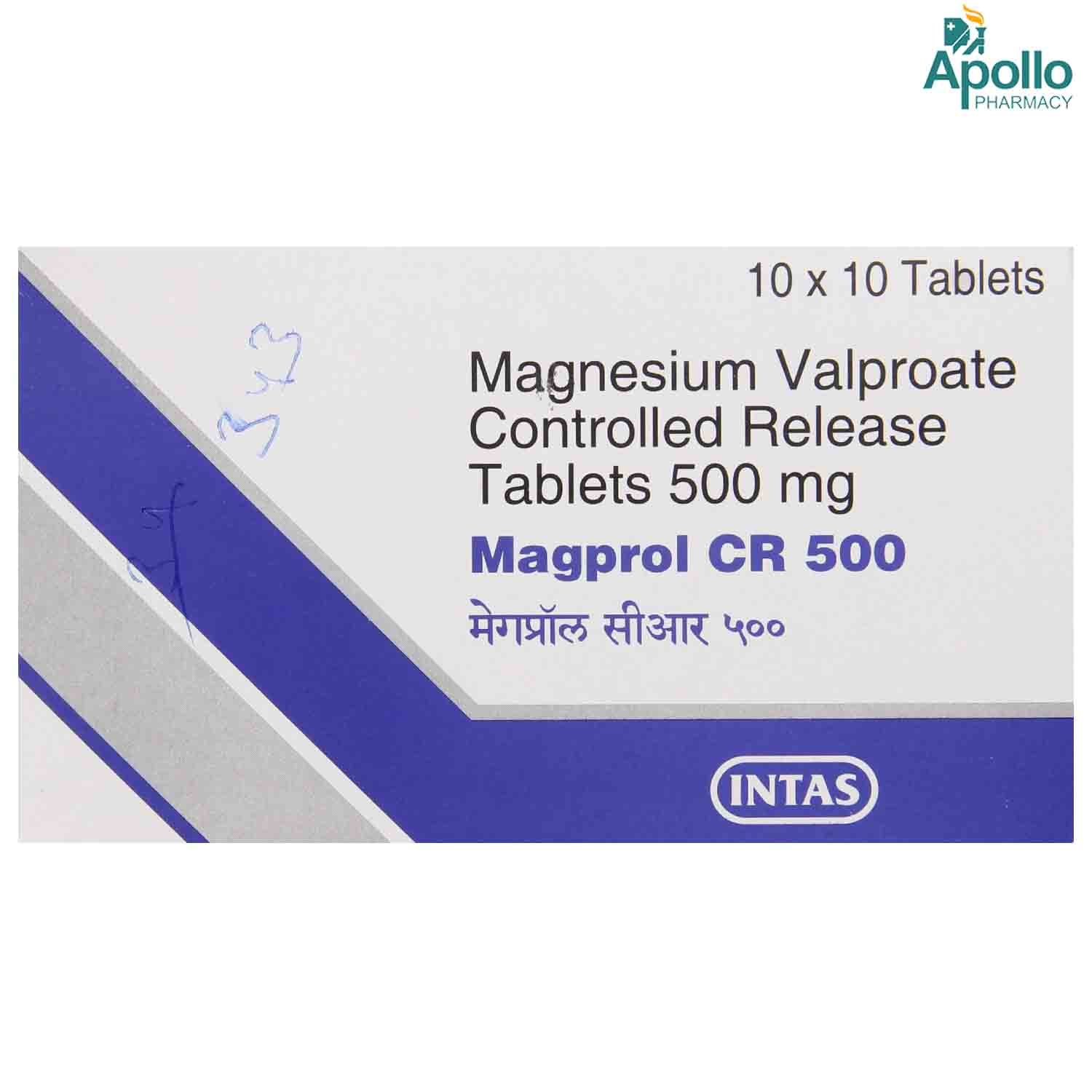Magnesium Valproate
About Magnesium Valproate
Magnesium Valproate belongs to a group of anticonvulsants or anti-epileptics used to treat epilepsy/seizures/fits. Additionally, Magnesium Valproate also treats bipolar disorder and prevents migraine symptoms (like a headache). Epilepsy is a sudden rush of electricity in the brain. In epilepsy, the brain's electrical rhythms become imbalanced, resulting in recurrent seizures, sometimes leading to an unconscious state.
The Magnesium Valproate contains 'Magnesium valproate', which decreases the brain's excessive and abnormal nerve activity. Thereby helping in controlling seizures. Magnesium Valproate increases the amount of a chemical substance called GABA; this helps block nerve transmission across the brain and provides a calming effect. Thereby helping treat bipolar disorder.
Always use this medicine exactly as your doctor has told you or as per the package leaflet. You must keep to your doctor's instructions to get the maximum benefit. Sometimes, you may experience certain common side effects, such as stomach pain, nausea, tremors, tiredness, sleepiness, headache, weight gain, and hair loss. Most of these side effects do not require medical attention and will resolve gradually over time. However, you are advised to talk to your doctor if you experience these side effects persistently.
Please do not stop taking Magnesium Valproate without consulting your doctor to avoid worsening seizures. Do not take Magnesium Valproate if you are pregnant, as it could cause severe congenital disabilities. If you are of childbearing age, use effective contraception while taking Magnesium Valproate. Consult your doctor before taking Magnesium Valproate if you are breastfeeding. Do not drive or operate machinery as Magnesium Valproate causes drowsiness and dizziness. Avoid consuming alcohol with Magnesium Valproate as it could lead to increased dizziness and sleepiness. Keep your doctor informed about your health condition and medicines to rule out any side effects.
Uses of Magnesium Valproate
Medicinal Benefits
Magnesium Valproate belongs to a group of anticonvulsants or anti-epileptics used to treat epilepsy (fits). Additionally, Magnesium Valproate also treats bipolar disorder and prevents migraine headaches. Magnesium Valproate decreases the brain's excessive and abnormal nerve activity, thereby controlling seizures. Magnesium Valproate is used to treat both localized (seizures that affect only a part of the brain) and generalized seizures (seizures that affect the entire brain).
Directions for Use
Storage
Side Effects of Magnesium Valproate
- Stomach pain
- Feeling or being sick
- Diarrhoea
- Dry or sore mouth
- Swollen gums
- Shakes or tremors
- Unusual eye movements
- Headache
- Weight gain
- Thinning hair
- Changes in the colour or texture of your hair
- Delayed or Irregular periods
Drug Warnings
Do not take Magnesium Valproate if you are hypersensitive to 'Magnesium valproate or any ingredients in Magnesium Valproate. If you have liver problems, porphyria, urine-related problems (such as urea cycle disorder), diabetes, immune system disorder, or kidney problems, you should not take the Magnesium Valproate. Contact your doctor immediately if you have suicidal thoughts while taking Magnesium Valproate. Do not take Magnesium Valproate if you are pregnant as it is pregnancy category D medicine and can cause severe congenital disabilities. Magnesium Valproate enters into breast milk in trace amounts, but it is unlikely to harm your baby, so you can continue nursing if your doctor advises you to. Magnesium Valproate causes drowsiness and dizziness, so drive only if you are alert. Avoid consuming alcohol along with Magnesium Valproate as it could lead to increased dizziness and sleepiness. If you stop taking your medicine without consulting your doctor, your symptoms may worsen.
Drug Interactions
Drug-Drug Interactions: Magnesium Valproate may have interacted with anti-epileptic medicines (e.g. carbamazepine, lamotrigine), anti-depressant medicines (e.g. amitriptyline, sertraline), anti-psychotic medicines (e.g. quetiapine, olanzapine, risperidone), medications used to control seizures or fits due to epilepsy (e.g. clonazepam, diazepam, lorazepam).
Drug-Food Interactions: Avoid alcohol consumption while taking Magnesium Valproate as it might cause increased dizziness and sleepiness.
Drug-Disease Interactions: Magnesium Valproate may interact with disease conditions such as depression, liver disease, urea cycle disorders, suicidal tendencies, HIV, thyroid disease, and thrombocytopenia (low platelets).
Drug-Drug Interactions Checker List:
Safety Advice

Alcohol
cautionAvoid consumption of alcohol while taking Magnesium Valproate as it may increase dizziness and sleepiness.

Pregnancy
unsafeMagnesium Valproate belongs to pregnancy category D. Avoid taking Magnesium Valproate if you are pregnant, as it could lead to severe birth defects.

Breast Feeding
cautionMagnesium Valproate may pass into breastmilk. Consult your doctor before taking Magnesium Valproate if you are breastfeeding.

Driving
unsafeMagnesium Valproate causes dizziness, sleepiness and tiredness. Do not drive or operate machinery unless you are alert.

Liver
unsafeShould not use the Magnesium Valproate if you have liver problems or your family has a history of liver problems. Please consult your doctor if you have any concerns regarding this.

Kidney
cautionMay need dose adjustment in patients with kidney impairment. Please consult your doctor if you have kidney impairment or any concerns regarding this.

Children
safe if prescribedMagnesium Valproate can be given to children if prescribed by the doctor. The doctor will adjust the dose depending on the child's body weight.
Habit Forming
Diet & Lifestyle Advise
- Adolescents and adults are advised to follow the Atkins diet (high fat, low carbohydrate).
- Exercising on a regular basis aids with weight maintenance and general health.
- Rest well, and get plenty of sleep.
- Avoid smoking and drinking alcohol.
- Meditation and yoga can help reduce stress, reduce pain sensitivity, and increase coping abilities.
- Have a seizure response plan in place, and make sure everyone around you knows what to do in the event of a seizure.
- Prepare your living environment; simple changes may help reduce the risk of physical damage during a seizure.
- Understand what causes seizures and try to reduce or avoid them.
- Please keep your overall health in mind, as it can aid in the reduction of seizure activity.
- Install an alarm or an emergency gadget to summon help during a seizure attack.
Special Advise
- Blood and urine tests may be affected by the Magnesium Valproate. Inform the person conducting the exams that you will be taking Magnesium Valproate.
- If you are of childbearing age, utilise effective contraception continuously during your treatment with Magnesium Valproate.
- Contact your doctor immediately if you become pregnant while taking Magnesium Valproate.
- To limit the possibility of negative effects, your doctor will begin you on a low dose of Magnesium Valproate. They will progressively raise it over a few days or weeks.
Patients Concern
Disease/Condition Glossary
Epilepsy: It is a sudden rush of electricity in the brain. It is a disorder of the nervous system which occurs due to disturbed nerve cell activity in the brain. In epilepsy, the brain's electrical rhythms become imbalanced, resulting in recurrent seizures. In patients with seizures, the typical brain electrical pattern is disrupted by sudden electrical impulses that affect an individual's consciousness, movements, or sensations. Seizures are of two types: generalized and partial seizures. Generalized seizures affect the entire brain, whereas partial seizures affect only a part of the brain. Seizures can cause uncontrollable muscle cramps and spasms. More substantial seizures may cause people to become confused or unconscious. Possible causes include high fever, trauma, genetic disorder, brain injury, or stroke.
Bipolar disorder: It is also known as manic depression or bipolar disease, is a mental health disorder associated with episodes of mood swings ranging from manic highs to depressive lows.
Migraine: A migraine is usually a moderate or severe headache felt as a throbbing pain on one side of the head.
FAQs
Magnesium Valproate decreases the excessive and abnormal nerve activity in the brain. It balances the brain's chemical messenger and prevents overactivity of the brain, thereby controlling seizure episodes.
Magnesium Valproate helps treat manic episodes associated with bipolar disorder by increasing the amount of a chemical substance called GABA; this helps block nerve transmission across the brain and provides a calming effect.
Adults aged 18 and above can take it to prevent migraines. Magnesium Valproate limits the transmission of nerve pain, thereby preventing migraine headaches. Migraine is a neurological condition that is characterized by intense headaches.
Magnesium Valproate may also be effective as an acute treatment option for headaches such as migraines, tension headaches, and cluster headaches. It should, however, only be used under the supervision of a doctor.
Magnesium Valproate is safe if taken in the dose and for the term prescribed by your doctor. Take it exactly as directed, and do not miss any doses. Follow your doctor's instructions carefully and notify him or her if any of the adverse effects bother you.

